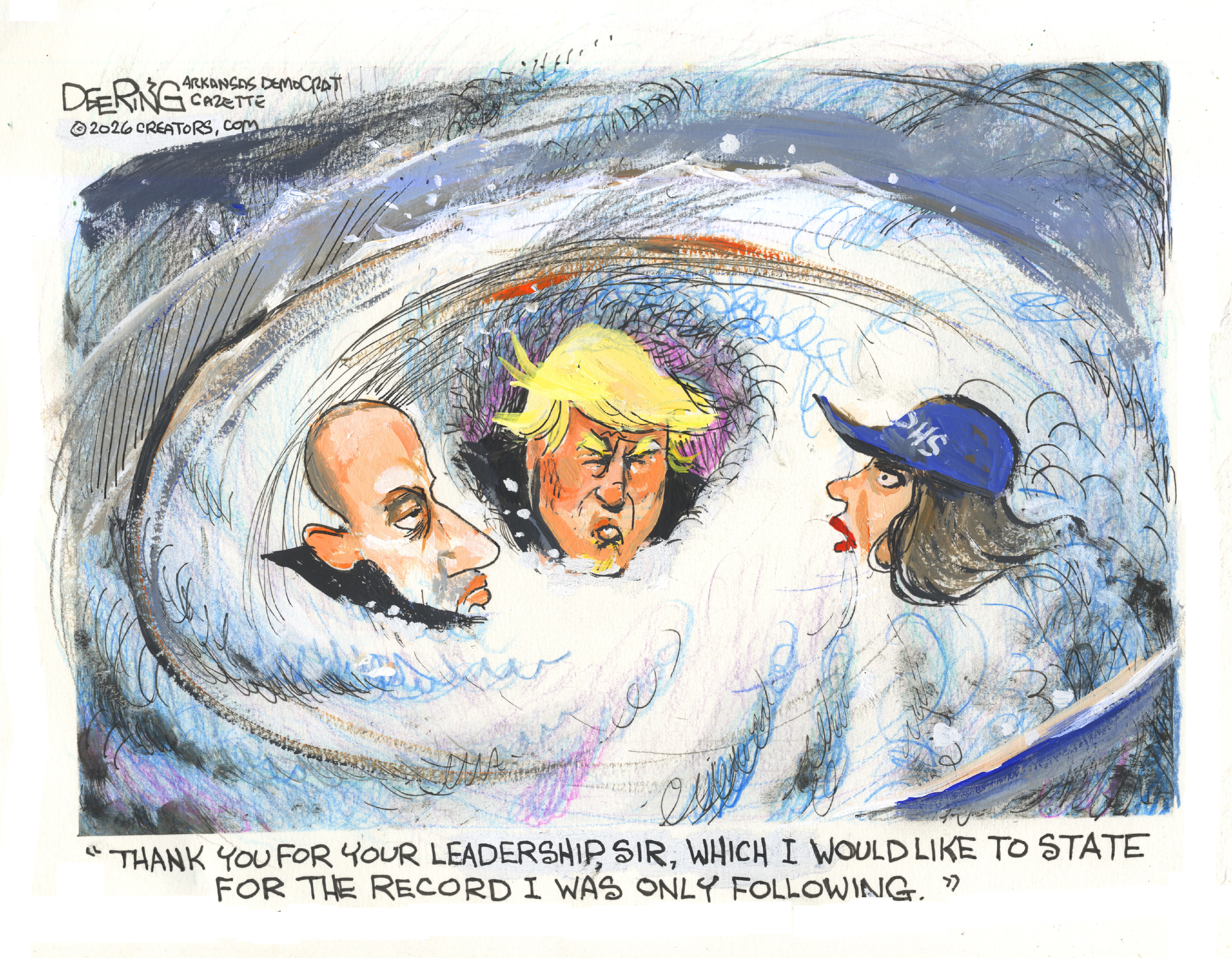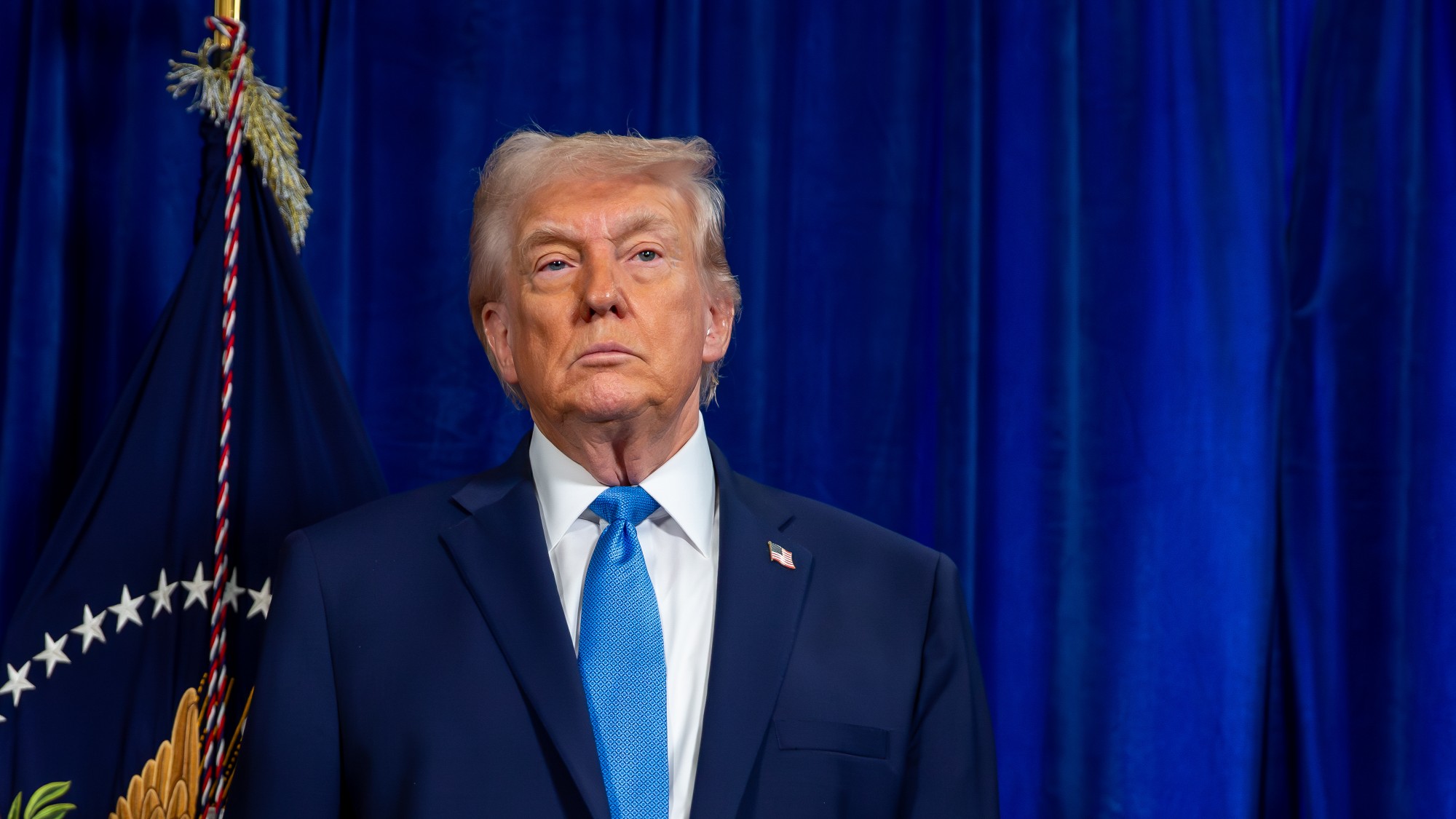Drill, baby, drill
The Arab uprisings prove once again that domestic oil production is critical to solving America's energy problems

A free daily email with the biggest news stories of the day – and the best features from TheWeek.com
You are now subscribed
Your newsletter sign-up was successful
In 2008, a rapid increase in the price of oil had significant political impact, one mostly forgotten in the overall economic collapse that occurred in the autumn, and in the heat of the presidential campaign. Rapidly increasing prices at the gas pump created a backlash from voters frustrated at decades of curbs on American production. At its peak, the "Drill Here, Drill Now" movement generated wide bipartisan support for domestic oil production both offshore and in the interior areas of the United States, and even in the more controversial Arctic National Wildlife Refuge.
The economic collapse popped the bubble on oil prices shortly afterward, and retail costs of gasoline sank back into the low-$2 range — until now. During the past few weeks, as waves of unrest swept through most of the Arab nations of North Africa and Southwest Asia, commodities traders sent the price of oil skyrocketing again, this time while the U.S. economy remains in the doldrums. The average price of a gallon of gas has risen by 47 cents in the United States since the first of the year, an increase of 15.4 percent in just 10 weeks. The shock has sent retail prices upward as costs to bring goods and services to market increase, a demonstration of the multiplier effect of gas prices on our economy. The inflationary pressure threatens to sap whatever momentum the United States generated from a still-weak fourth quarter with an annualized GDP growth rate of 2.8 percent.
Disruptions in oil-producing nations like Saudi Arabia and Libya look more likely than ever.
The Week
Escape your echo chamber. Get the facts behind the news, plus analysis from multiple perspectives.

Sign up for The Week's Free Newsletters
From our morning news briefing to a weekly Good News Newsletter, get the best of The Week delivered directly to your inbox.
From our morning news briefing to a weekly Good News Newsletter, get the best of The Week delivered directly to your inbox.
The White House has come under considerable pressure to address rising oil prices, but it has some credibility problems on the issue. President Barack Obama said as a candidate in June 2008 — when the domestic drilling movement began — that the only problem he had with $4 per gallon gas was the rate of increase, not the price itself. Backers of government intervention in energy production often call for artificially higher gas prices, either through taxes or onerous energy policies, to make alternatives more competitive or to push drivers to change behavior through economic pressure. In fact, candidate Obama told CNBC's John Harwood that the high gas prices would be acceptable if government would help consumers adjust by "putting more money in their pockets" and pushing U.S. automakers for design changes to reduce gasoline use.
Still, the Obama administration appears to understand now that a gas-pump price shock will stifle consumer spending in other areas of the economy — just as it just started picking up the pace during the past two months. Unfortunately, thanks to an American energy policy that has handcuffed exploration and extraction in the United States and a moratorium on Gulf drilling that curtailed even the one area of offshore drilling that the federal government once allowed, Obama has few options without reversing course on domestic production. Instead, the president's advisers and some leading Democrats on Capitol Hill have openly talked about tapping the Strategic Petroleum Reserve to slow the rapid increase in gas prices.
This idea occurred to Congress during the domestic-drilling movement in 2008, and it's as bad an idea now as it was then. First, the reserve contains 720 million barrels of oil, making it the largest such reserve in the world, but in context it's rather small. The United States uses 18.8 million barrels of oil a day, according to the U.S. Energy Information Administration's 2009 figures. The reserve would only last 38 days if we used all of it. The impact on global oil sales would be negligible and short-lived, which means it would have only a small impact on price.
Furthermore, the strategic reserve exists to protect the United States in case of a significant interruption in our oil imports. It was not designed as a means for the government to manipulate the price of gasoline. Using it for that purpose leaves the United States less prepared to deal with disruptions at the very moment when such disruptions in oil-producing nations like Saudi Arabia and Libya look more likely than ever.
A free daily email with the biggest news stories of the day – and the best features from TheWeek.com
Instead of tapping our strategic reserve, we should be drilling for our own energy resources, and not just oil. We could convert oil and coal to cleaner natural gas, for instance, if we allowed ourselves to do the drilling and extraction necessary to ensure reliable supplies on the scale needed. Such an effort would allow for cheaper and more stable energy supplies, but would also pay off for the U.S. economy in other ways. Exploration and extraction create jobs on a large scale. Those jobs tend to be high-paying union jobs, which should have the labor movement clamoring for action. Not only would we have cheaper energy to make investing in the economy more efficient and effective, we would also create hundreds of thousands of new private-sector jobs and get Americans back to work.
The last time the domestic drilling movement demanded changes in energy policy to allow for more domestic production, opponents scoffed that rule changes wouldn't have any real effect for years. Had we followed through on the drilling when prices shot up the first time, some of those resources would already be giving the Obama administration better options than it has at the moment to deal with a new energy squeeze. Will we finally act to use the resources at our fingertips to reduce our reliance on foreign sources of oil with domestic policies designed to encourage and incentivize drilling, or will we wait for the next crisis to wonder again why we didn't act this time?
Edward Morrissey has been writing about politics since 2003 in his blog, Captain's Quarters, and now writes for HotAir.com. His columns have appeared in the Washington Post, the New York Post, The New York Sun, the Washington Times, and other newspapers. Morrissey has a daily Internet talk show on politics and culture at Hot Air. Since 2004, Morrissey has had a weekend talk radio show in the Minneapolis/St. Paul area and often fills in as a guest on Salem Radio Network's nationally-syndicated shows. He lives in the Twin Cities area of Minnesota with his wife, son and daughter-in-law, and his two granddaughters. Morrissey's new book, GOING RED, will be published by Crown Forum on April 5, 2016.
-
 Political cartoons for February 8
Political cartoons for February 8Cartoons Sunday’s political cartoons include going down the drain, American history, and more
-
 Touring the vineyards of southern Bolivia
Touring the vineyards of southern BoliviaThe Week Recommends Strongly reminiscent of Andalusia, these vineyards cut deep into the country’s southwest
-
 American empire: a history of US imperial expansion
American empire: a history of US imperial expansionDonald Trump’s 21st century take on the Monroe Doctrine harks back to an earlier era of US interference in Latin America
